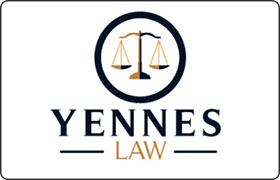Dunedin Timeshare Lawyer, Florida
Sponsored Law Firm
-
 x
x

Click For More Info:
-
Law Office of Adham Yennes
27709 FL-56 Unit 103 Wesley Chapel, FL 33543» view mapBankruptcy & Debt Law Proudly Serving Hillsborough County
You need an attorney with bankruptcy knowledge who will vigorously protect your rights and interests.
800-873-3840
Not enough matches for Dunedin Timeshare lawyer.
Below are all Dunedin Real Estate lawyers.
William Joseph Kimpton
Real Estate Other, Land Use & Zoning, Wills & Probate, Estate Planning
Status: In Good Standing Licensed: 52 Years
FREE CONSULTATION
CONTACTRobert L. Tankel
Condominiums, Real Estate, Business, Commercial Real Estate
Status: In Good Standing Licensed: 42 Years
James Frederick Gulecas
Commercial Real Estate, International Tax, Trusts, Corporate
Status: In Good Standing
John Frederick Freeborn
Commercial Real Estate, International Tax, Trusts, Contract
Status: In Good Standing
John Bertram Freeborn
Commercial Real Estate, International Tax, Trusts, Contract
Status: In Good Standing
Paul Peter Terry
Commercial Real Estate, Construction, Litigation, Business & Trade
Status: In Good Standing Licensed: 40 Years
Paul Peter Terry
Commercial Real Estate, Construction, Litigation, Business & Trade
Status: In Good Standing Licensed: 40 Years
Sherri Marie Stinson
Real Estate, Power of Attorney, Wills & Probate, Estate, Credit & Debt
Status: In Good Standing
Daniel Jason Greenberg
Commercial Real Estate, Real Estate, Estate Planning
Status: In Good Standing Licensed: 15 Years
Guy Michael MacKenzie
Commercial Real Estate, Federal Appellate Practice, Business & Trade, Corporate
Status: In Good Standing Licensed: 52 Years
 Adham Yennes Wesley Chapel, FL
Adham Yennes Wesley Chapel, FL AboutLaw Office of Adham Yennes
AboutLaw Office of Adham Yennes Practice AreasExpertise
Practice AreasExpertise
